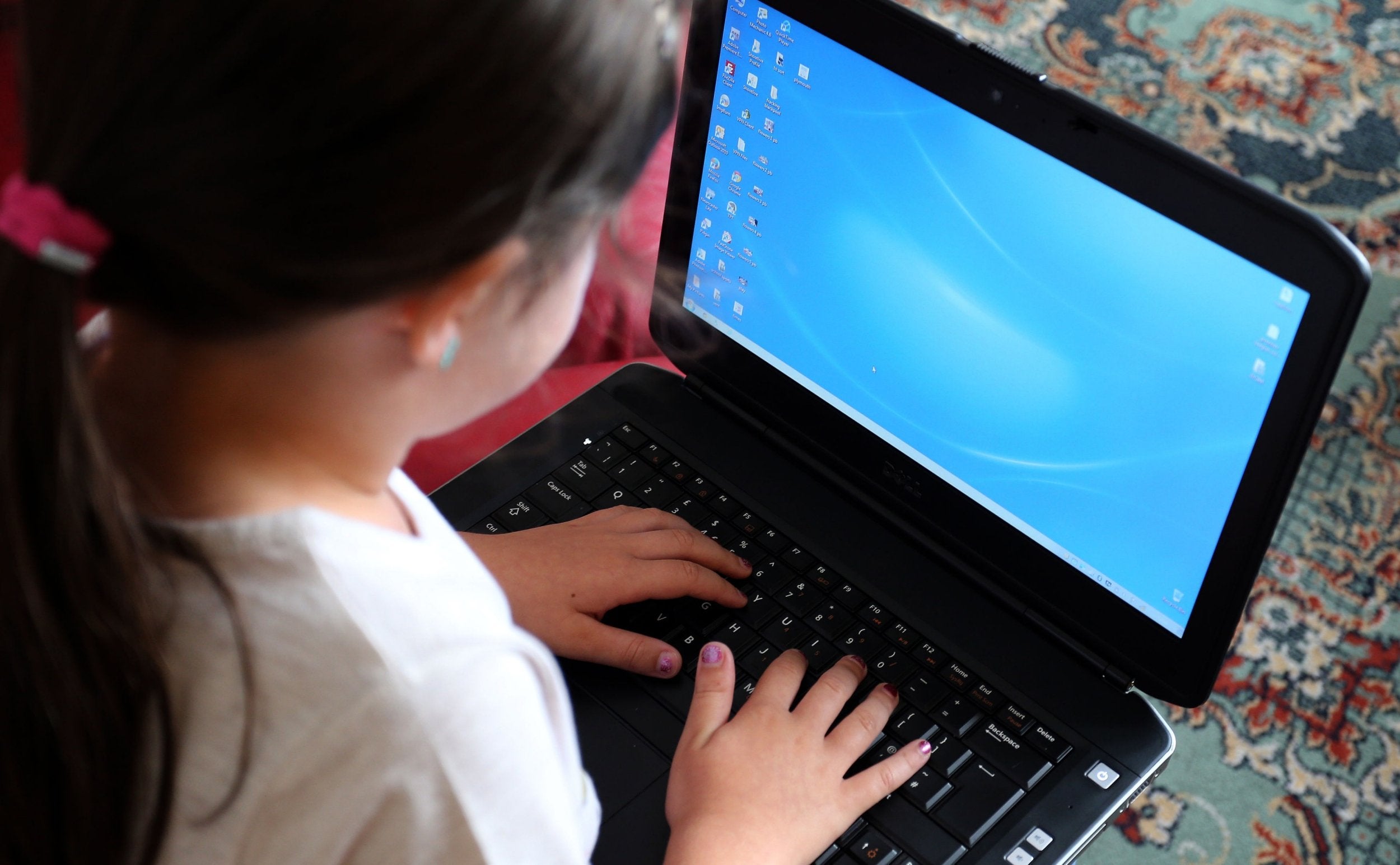Vulnerable children playing computer games all day in suspected illegal schools, Ofsted officials warn
Thousands of children are attending unregistered schools that leave them at risk of harm

Your support helps us to tell the story
From reproductive rights to climate change to Big Tech, The Independent is on the ground when the story is developing. Whether it's investigating the financials of Elon Musk's pro-Trump PAC or producing our latest documentary, 'The A Word', which shines a light on the American women fighting for reproductive rights, we know how important it is to parse out the facts from the messaging.
At such a critical moment in US history, we need reporters on the ground. Your donation allows us to keep sending journalists to speak to both sides of the story.
The Independent is trusted by Americans across the entire political spectrum. And unlike many other quality news outlets, we choose not to lock Americans out of our reporting and analysis with paywalls. We believe quality journalism should be available to everyone, paid for by those who can afford it.
Your support makes all the difference.Some of the most vulnerable children are being left to play computer games all day in suspected illegal schools which “rob” them of their life chances, Ofsted officials have warned.
Inspectors have found open sewers, rat traps, exposed electrical wires and modular units used as classrooms.
Councils are paying thousands of pounds to send children with behavioural problems to unregistered schools with poor conditions where pupils “languish”, the watchdog has said.
In a report it estimates that at least 6,000 children in England are taught at suspected illegal schools run by unqualified staff, and in some cases by teachers banned from the profession.
Some of these children end up in unregistered alternative provision because of behavioural issues, while others are taught in these settings because their families want a faith education, Ofsted said.
Since 2016, the watchdog has investigated 521 settings and inspected 259 in England. Almost a quarter (23 per cent) of the settings investigated are in London.
Just over a fifth (21 per cent) of these settings are places of religious instruction, but alternative provision (AP) – which provides education for pupils who have behaviour issues outside of mainstream education – is the most common type of setting (28 per cent).
One unnamed council paid £27,000 per pupil per year to place children in one alternative provider which Ofsted found to be “illegal”, the watchdog said.
Victor Shafiee, Ofsted’s deputy director in charge of the unregistered schools taskforce, said: “We come across lots of alternative providers that are unregistered and unregulated, but are full-time, where children languish and waste their time in these places. In truth, unregistered schools are a bad thing. They are bad for the children who go to these settings because they are robbed of their life chances.”
Sean Harford, Ofsted’s national director of education, added: “We are not talking about an AP where the children go there and they are focusing on their English and maths. We talking about when it’s computer games or totally religious texts.”
Sue Will, senior officer at Ofsted, said: “I have been really shocked at the health and safety issues that we have seen. I mean, quite appalling. We are not just talking about run-down places that could do with a lick of paint, we are talking about some not very nice places at all. Open sewers, rat traps in rooms, I have seen portacabins balanced on portacabins to maximise space, exposed electrical-ware, I’ve seen holes in walls and floors, I have seen locked fire doors, I have seen holes where children have probably punched plaster walls.”
In total, 71 settings have been issued with a warning notice. Of these, 15 have since closed, while 39 have changed the way they operate and nine have registered as independent schools.
The watchdog, which is calling on the government to provide more powers to seize evidence and question witnesses in these schools, has warned that the figures are only the “tip of the iceberg”.
Ofsted officials added that children in these schools could be being exposed to homophobic and misogynistic texts, but it is difficult for inspectors to prove this as their powers to search are limited.
To be required to register as a school, a setting must be providing full-time education to at least five children of compulsory school age, or one child who is looked after by the local authority or has an education, health and care plan.
It must operate from a building, and must offer a curriculum that includes maths and English.
There is currently no legal definition of “full-time education”, but the Department for Education has issued guidance to say that 18 hours or more a week is likely to constitute full-time education.
However, Ofsted says some providers circumvent the requirement to register by operating for 17 hours and 50 minutes per week.
A Department for Education spokesperson said: “Today’s data shows why our new register of children not in school is so important. Illegal schools are unregulated and present a danger to both the quality of education and the welfare of those children who attend them – a register will vastly improve councils’ capacity to identify those children and intervene.
“We have already established a joint team with Ofsted and provided them with £3m to investigate these settings, and continue to work with them and the Crown Prosecution Service to make sure illegal activity is uncovered and justice is delivered.”
Join our commenting forum
Join thought-provoking conversations, follow other Independent readers and see their replies
Comments